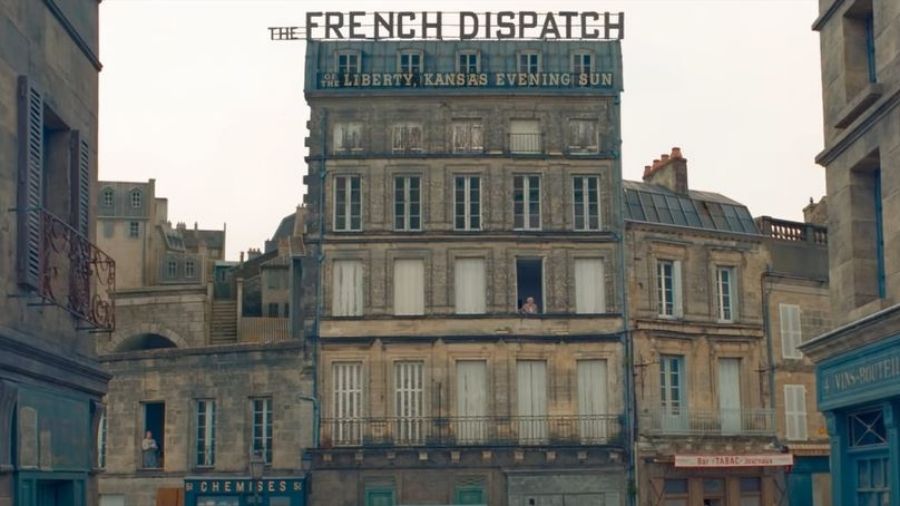‘The Irishman’ succeeds as a reflective, almost philosophical mob movie
Nov 15, 2019, 2:52 PM
Famed director Martin Scorsese has teamed up with Robert DeNiro for the ninth time, Joe Pesci for the third time, and Al Pacino for the first time to make “The Irishman,” a classic mob movie with a significant twist. The twist is not one of plot or character but of tone. Ultimately, “The Irishman” is a reflective, almost philosophical mob movie.
That’s not to say there isn’t a lot of typical gangster crime (racketeering, smuggling, weapons trafficking, robbery) and standard high-energy gangster action (shoot-outs, violent assaults, brutal killings.) But in the end, it’s a remarkably subdued look at the life choices mobsters make. It’s not the glamorous life that movies like to make it out to be. Regrets, they’ve had a few.
The movie is based on the life story of a World War Two army vet named Frank Sheeran, who, for decades, worked as a hitman for the Bufalino crime family.
“It was like the army, you followed orders. You did the right thing, you got rewarded,” he says.
Mob boss Russell Bufalino also helped him become the right hand man of the most powerful union boss in the country, Jimmy Hoffa.
“Our friend speaks very highly of you,” Hoffa says. “I heard you paint houses.”
In the book this film is based on, “I Heard You Paint Houses,” Sheeran claims to know how Hoffa died. (By the way, the phrase “paint houses” is mob lingo for a hit man. When you shoot somebody and the blood splatters on the walls – that’s “painting a house.”)
‘Midway’ has thrilling war scenes, but is a waste of good history
It’s Hoffa’s demise that provides the dramatic focus for the film, despite the fact that Scorsese covers many decades both before and after that deed. He accomplishes that by opening and closing the film with Sheeran as an old man reminiscing in a nursing home and using flashbacks to tell a jumbled chronology of his life.
Despite all the flashbacks, it’s worth noting that this film is decidedly not showy. There are no stand-out examples of “bravura filmmaking,” and that’s entirely by design. Scorsese says Sheeran was not a showy mobster. He was a matter-of-fact, do- your-job kind of henchman, and Scorsese chooses to portray his actions accordingly. The film’s aesthetic matches its subject.
That low-key aesthetic is on full display in perhaps the most extraordinary scene in the movie. An elderly Sheeran appears to be making a confession of sorts to a very earnest young priest. But rather than a typical Hollywood conversion scene in which a dying criminal desperately asks for and receives God’s forgiveness for his life of crime, “The Irishman” instead turns it into a theological discussion about whether a lack of remorse and guilt nullifies the sacrament of Confession. The film is clearly not looking for tidy resolutions, and Sheeran neither seeks nor receives one. The nuance in this scene alone may earn screenwriter Steve Zailian another Oscar nod.
‘Jojo Rabbit’ is a biting satire of the inanity at the heart of Nazism
As for the actors who speak Zaillian’s dialogue, DeNiro is excellent as the reserved, behind-the-scenes man, Frank Sheeran, who swallows his ego to get ahead. Pacino is recognizably “Pacino,” playing the hothead Jimmy Hoffa. The sparks really fly between the two them in a series of confidential, heart-to-heart conversations/confrontations. Those particular scenes late in the movie are pure actor showcases but they also provide the emotional fireworks as well.
My favorite performance, however, is Joe Pesci’s, primarily because he plays the polar opposite of his earlier roles in “Goodfellas” and “Casino.” His Bufalino is so quiet, so unassuming, so circumspect, even as he ruthlessly rules his crime syndicate, that it’s hard to realize it’s Joe “Funny how?” Pesci. That trio of great actors is aided by strong supporting performances by Scorsese regular Harvey Keitel, Ray Romano, Bobby Cannavale, and Stephen Graham.
The film’s length, at three and a half hours, may prove a problem for some. I can personally attest to the fact that, through circumstances out of my control, I had to watch it on a very hungry stomach and my interest never wavered. I highly recommend seeing it in the theatre while you can – it’s playing at the Cinerama in Seattle. But if that’s too much for you, it’ll be available on Netflix on November 27.













